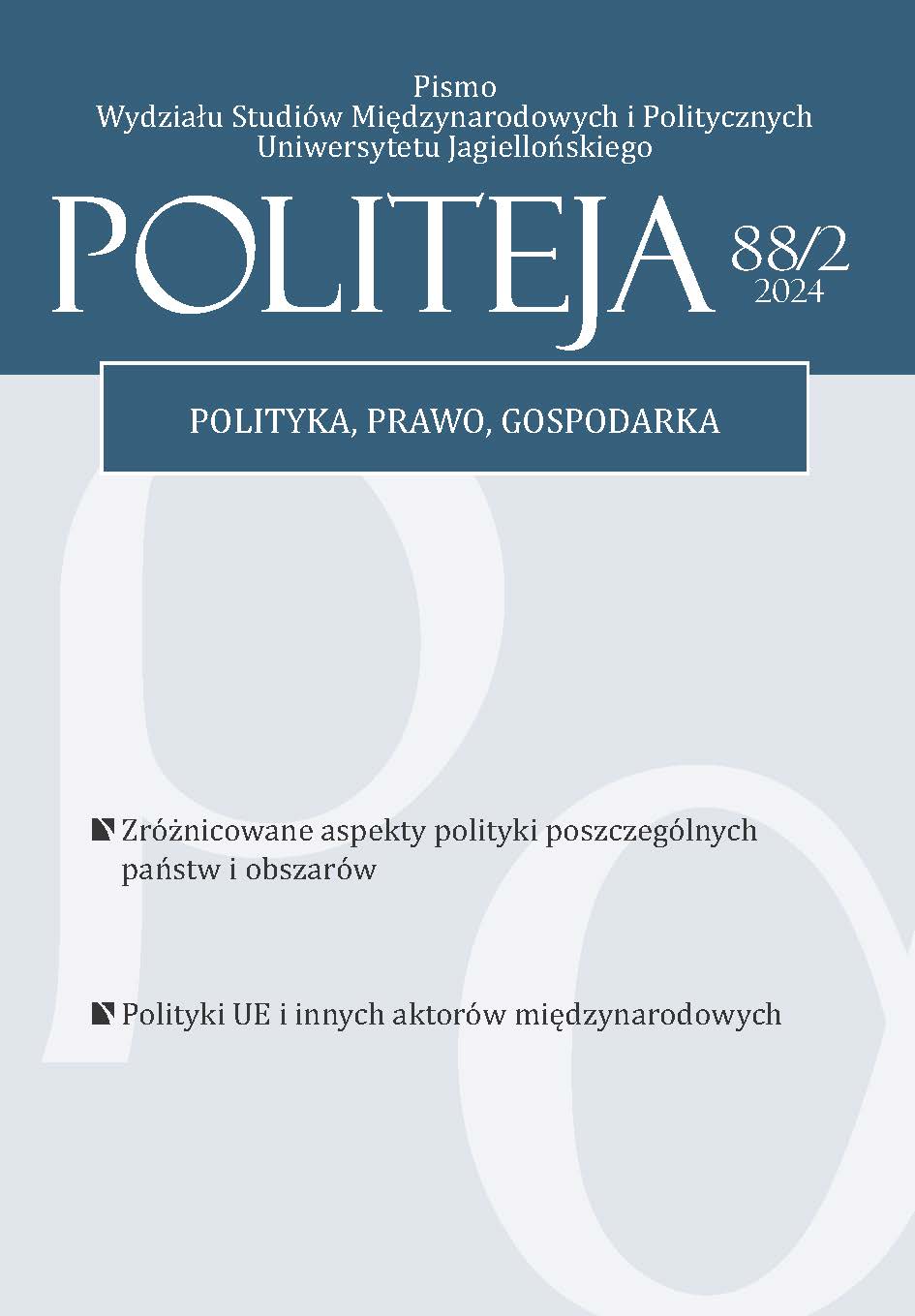Autonomia parlamentów narodowych w hybrydowym systemie Unii Europejskiej
Autonomy of National Parliaments in the Hybrid System of the European Union
Author(s): Zbigniew CzachórSubject(s): Politics / Political Sciences, EU-Approach / EU-Accession / EU-Development
Published by: KSIĘGARNIA AKADEMICKA Sp. z o.o.
Keywords: autonomy; independence; separateness; self-reliance; sovereignty
Summary/Abstract: This article aims to prove the hypothesis that the European Union has become a subsidiarily independent entity, with a hybrid character that combines supra‑national, supra-state and national (state) elements. This makes member states and their parliamentary representations occupy an autonomous position in the EU power system, creating and implementing their own functions and interests. The article was prepared based on neo-functionalist, but also neo-realist premises. Both of these paradigms are present in the theory of representation, which distinguishes representation of national parliaments as acting “on behalf of someone” and representation as acting “on its own behalf ”. For this reason, the article substantiates its author’s belief that national parliaments in the European Union act in a hybrid manner, not least because they simultaneously represent their states (governments) and the EU institutions, but also themselves as autonomous and independent subjects of EU power.
Journal: Politeja - Pismo Wydziału Studiów Międzynarodowych i Politycznych Uniwersytetu Jagiellońskiego
- Issue Year: 21/2024
- Issue No: 88/2
- Page Range: 169-182
- Page Count: 14
- Language: Polish

